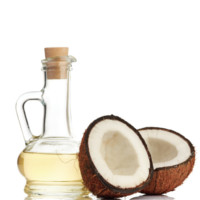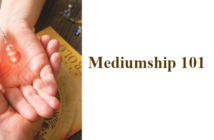by Pamela A. Popper, Ph.D., ND
Coconut oil is represented as having almost magical properties. Some people claim that coconut oil is a  cure for Alzheimer’s disease, hypothyroidism, cancer, and almost any and all health conditions. But are these claims true?
cure for Alzheimer’s disease, hypothyroidism, cancer, and almost any and all health conditions. But are these claims true?
The nutrient breakdown alone says that coconut oil is most likely not a health-promoting food. One tablespoon of coconut oil has 116 calories and 14 grams of fat, 12 grams of which are saturated fat. To put this in perspective, lard has only 5 grams of saturated fat per tablespoon. But many advocates of coconut oil say that the high saturated fat content does not matter, and increases in plasma cholesterol resulting from coconut oil intake do not matter either. They cite populations, such as the residents of Kitava and the Minangkabau of Indonesia, that eat a diet high in coconut oil and yet maintain excellent health.
Let’s start with the approximately 2,500 residents of Kitava, many of whom are farmers. The Kitava diet is concentrated in tubers (yams, sweet potatoes and taro), fruit, fish and coconut. They do not eat dairy products or processed foods, or drink alcohol, coffee or tea. The macronutrient makeup of the diet is 69 percent carbohydrate, 21 percent fat, and 10 percent protein.
Not surprisingly, based on this diet, the Kitava have lower body mass index, lower blood pressure, lower overall cholesterol, and lower LDL cholesterol than people living in Westernized countries. Also not surprisingly, there is almost no heart disease in this population.
The diet of the Minangkabau also includes coconut and coconut oil but is slightly different. The Minangkabau diet is concentrated in vegetables, rice, fruit, fish and coconut, and coconut is the primary source of fat in the diet. Beef and chicken are consumed on special occasions; pork is not eaten; and lamb, goat and wild game are rarely eaten. But the diet is much higher in fat (30.2 percent), and a significantly higher percentage of that fat is saturated fat. The Minangkabau have the highest rate of hypertension in Indonesia at 23.6 percent, and also the highest proportion of overweight people at 36 percent. Apparently the high-fat eating and coconut oil intake are not working out so well for the Minangkabau. The bottom line is that the diets and health status of populations like these, which are frequently mentioned on websites promoting coconut oil, do not support the idea that people should include coconut oil in their diets, eat a high-fat diet, or be unconcerned about plasma cholesterol.
Proponents say that coconut oil’s main saturated fat, lauric acid, has been shown in some studies to increase HDL levels. This is true. But increasing HDL levels has not been shown to be make a positive difference in long-term health outcomes; in fact, studies have shown that drugs and supplements that increase HDL cholesterol do not improve health outcomes, and in some cases, worsen them.
The effect of lauric acid on LDL cholesterol depends on which fat it replaces in the diet. If it replaces vegetable and polyunsaturated fats, it increases LDL; if it replaces butter, its effect is usually neutral.
Pam Popper is a naturopath; an internationally recognized expert on nutrition, medicine and health; and the executive director of Wellness Forum Health. She will be speaking at The Real Truth About Health Conference, which will be held Feb. 2-11, 2018, at the Long Island Hilton, in Melville (RealTruthTalks.com).





